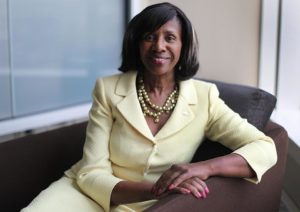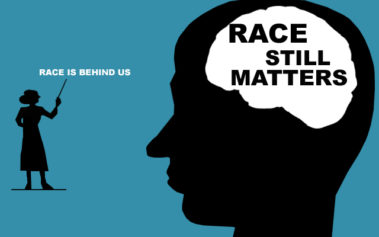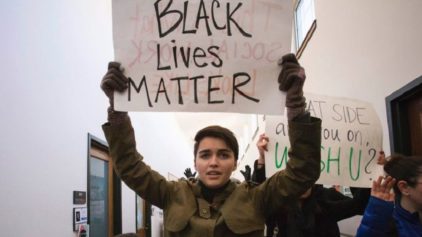
Next August, Brown will assume the leadership of the 400,000-member organization that oversees the standards and practices of the nation’s legal profession. Brown will be directing an organization didn’t even allow Blacks to join until 1943.
At a time when the nation and particularly the African-American community is consumed by the question of unfairness and inequity in the criminal justice, tackling systemic racism is clearly a question about which Brown has given considerable thought.
“I think that there certainly are disparities as it relates to sentencing, who gets arrested, who gets charged and who gets charged with what,” Brown said in an exclusive interview with Atlanta Blackstar. “And I think that some of it has to do with people’s unconscious biases.”
Take the pure cocaine vs. crack sentencing guidelines, for example. Up until 2010, a person who had 5 grams of crack cocaine would receive a mandatory minimum sentence of five years, while it would take 500 grams of powdered cocaine to receive a similar sentence. Because crack was more common in the inner cities, it was a guideline that was blatantly hurting Black people more than any other race.
“I think all of us have to be always vigilant and bring it to the attention of the public,” said Brown. “It can’t just be a few people. The public has to really be more interested in the fate of their communities and they have to vote. This past election 2/3 of the people didn’t vote. So your voice can’t be heard if you don’t engage in the process.”
Brown said she got into law because she saw a problem and wanted to help.
“I went to college wanting to be a social worker because I wanted to save everyone,” Brown said. But after beginning her studies at Howard she realized she could still help people if she went into law.
“Law has been a better way to do it. Not that social workers don’t do great work, but I think that you can have a greater impact as a lawyer and have more access,” she said. “The law has taught me to think more analytically. I’d like to think that I’ve been able to help more people over the span of my career than I probably would have been able to as a social worker.”
The road to success wasn’t necessarily paved with gold for Brown. Not only was she a woman trying to break into the field, but she was a Black woman.
“Even when you show up in a suit and your clients are dressed casually they still ask whether you are the court reporter sometimes,” the lawyer said. “Especially as a litigator, there are very few women of color who are trying cases and even now if I go to court I never see any African-American women my age.”
When she started in 1976 people weren’t exactly clamoring to take a Black woman seriously. People would go as far as to either pretend they hadn’t heard what she said or simply act as if she wasn’t in the room. But that wasn’t something Brown was willing to let deter her.
“I had a strong foundation growing up, we were always told we could do whatever we wanted to do,” Brown recalled. “My father always said there were no boy jobs and there were no girl jobs. It also helped that I went to Howard, which was an extremely positive environment. They were very encouraging for you to do the best that you can do. So those things were very helpful so even when people would say what I could do or shouldn’t do, it didn’t matter.”
Though she was determined to succeed and become the lawyer she knew she was capable of becoming, Brown never imagined her career would go this far. To be president of an organization with 400,000 members was never something that Brown thought about during the early stages of her career.
“It didn’t occur to me that I could (be president),” she said. “The thought never crossed my mind early on. A lot of things that have happened to me never crossed my mind. Some things you can’t dream about because you don’t know they exist to even dream about. The opportunities that I’ve had have been just absolutely extraordinary.”


